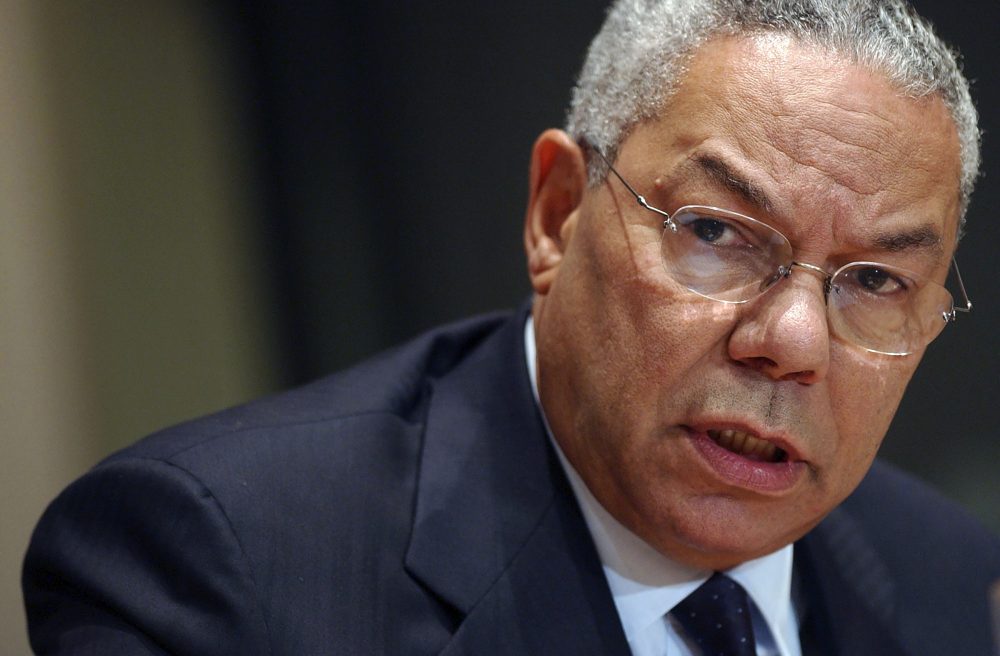
General Colin Powell, the first black Secretary of State in the U.S., died Monday at age 84 due to complications with COVID-19.
Powell, who served under former President George W. Bush and led the first Gulf War as chairman of the joint chiefs, was also a board member for Rice University’s Doerr Institute, which commits itself to elevating leadership qualities for its students.
Houston Public Media spoke with Tom Kolditz, the founding director of the Doerr Institute, about the impact Powell had on the university, and on the city of Houston.
This interview has been edited for length and clarity.
Listen
What can you tell me about Colin Powell’s connection with the institute?
General Powell was on our board and he was extraordinarily helpful to us, especially in the early days. In terms of understanding the dynamics of teaching and learning leadership. So he was a friend of the institute, he was a board member, and he was a fantastic leader himself.
What were some of the things that he talked about when he talked about leadership?
I think the first thing he tried to convey is that, learning to lead is not an academic exercise. People really don’t learn to lead in a classroom, per se, they tend to learn to lead by watching others, by the example of other leaders.
That’s one of the reasons why the Doerr Institute doesn’t teach any academic classes in leadership. Being able to lead has less to do with knowledge about leadership than it has to do with the practice of leadership. So it’s not about knowledge, it’s about practice.
Can you provide a little bit more detail just about who he was and what he meant to the board?
He was a fine human being. He certainly had respect for the idea that leadership is politically independent. That no particular political party has a lease on leadership.
His departure from the Republican Party is famous, but I honestly don’t believe he felt that much allegiance to the Democratic Party either. He was truly independent, and that’s one of the qualities that fit well with the Doerr Institute because we are also politically independent.
If I were to ask you what General Powell’s legacy is, what would you say?
You know the city of Houston is incredibly diverse. And here’s a a person who, himself, represents not just diversity in terms of of race, but in terms of his thinking. The only real constant in terms of how he viewed the world was that he thought leadership was phenomenally important and he thought that personal integrity in leadership is what drives everything.
You know, in the wake of the Iraq war where reputationally he suffered, he was still honest and forthright. He did the best with the intelligence that he had. I think he was a standard bearer to the people of Houston.

 84 °F
84 °F
